

What is the difference between journey , trip , voyage and excursion ?
Quick word challenge
Quiz Review
Score: 0 / 5
- Organizations
- Planning & Activities
- Product & Services
- Structure & Systems
- Career & Education
- Entertainment
- Fashion & Beauty
- Political Institutions
- SmartPhones
- Protocols & Formats
- Communication
- Web Applications
- Household Equipments
- Career and Certifications
- Diet & Fitness
- Mathematics & Statistics
- Processed Foods
- Vegetables & Fruits
Difference Between Voyage and Journey
• Categorized under Words | Difference Between Voyage and Journey
Voyage vs Journey
“Voyage” and “journey” are two words related to the word “travel.” “Travel” means “going from one particular place to another place.” “Journey” refers to a lone piece of travel. “Voyage” refers to a long journey, especially by ship.
Journey “Journey” refers to a single or lone piece of travel. It means traveling from one place to another place. For example, The journey from England to France can be done by train. It can be a short journey which is referred to as a trip, or a long journey. “Journey” can be used as a verb too in place of “travel,” but it sounds very poetic and formal. For example, They journeyed across the desert.
There are many words which are used to describe different types of journeys, for example:
Odyssey-Which refers to an eventful, long, wandering journey. Expedition-Refers to a journey which is organized for some particular purpose. Commute-Refers to a daily or regular journey from one’s place of work to home. Excursion-Refers to a journey which is particularly for pleasure. Schlep-Refers to a difficult and tedious journey.
These are just a few words which are used in place of “journey” to describe a very particular type of journey. “Journey” is used metaphorically also which does not actually describe the journey of a person from one place to another but the events happening in the life of a person, for example, The journey of one’s life, or life itself described as a long journey.
Voyage “Voyage” refers to a long journey mainly to a distant place or foreign place especially by the sea. The word “voyage” is not often used in modern times but historically. Voyages were very significant. For example, Christopher Columbus discovered American mainland in his third voyage. People traveled by sea to all foreign lands for trade, pleasure, adventure, etc. Wars were won and lost on the sea. Nations were built and destroyed by the power of the fleet possessed by a nation.
There are many words which are used in place of “voyage,” for example:
Cruise-Which refers to an ocean trip taken especially for pleasure. Crossing-It refers to a voyage across the Atlantic ocean not specifically said but understood.
There are many other words similar to these words which specifically express a journey by sea.
1.“Journey” refers to a single or lone piece of travel; “voyage” refers to a long journey mainly to a distant place or foreign place especially by the sea. 2.“Journey” is a word which is very often used in the modern world; “voyage” is not often used in the modern world but was very significant historically.
- Recent Posts
- Difference Between Data Mining and Data Warehousing - October 21, 2012
- Difference Between 7-Keto DHEA and DHEA - October 20, 2012
- Difference Between Tamil and Malayalam - October 18, 2012
Sharing is caring!
Search DifferenceBetween.net :
- Difference Between Travelers and Tourists
- Difference Between Aquatic and Marine
- Difference Between Faraway and Far Away
- Differences Between the Words ‘Agenda’ & ‘Itinerary’
- Difference Between Ocean Liner and Cruise Ship
Cite APA 7 Kaushik, N. (2012, February 6). Difference Between Voyage and Journey. Difference Between Similar Terms and Objects. http://www.differencebetween.net/language/words-language/difference-between-voyage-and-journey/. MLA 8 Kaushik, Nimisha. "Difference Between Voyage and Journey." Difference Between Similar Terms and Objects, 6 February, 2012, http://www.differencebetween.net/language/words-language/difference-between-voyage-and-journey/.
Thanks for the giggle. Reading through the definitions of journey and come upon “schlep”. Hilarious that you should include this Yiddish idiom.
Yes! Finally something about travel.
Leave a Response
Name ( required )
Email ( required )
Please note: comment moderation is enabled and may delay your comment. There is no need to resubmit your comment.
Notify me of followup comments via e-mail
Written by : Nimisha Kaushik. and updated on 2012, February 6 Articles on DifferenceBetween.net are general information, and are not intended to substitute for professional advice. The information is "AS IS", "WITH ALL FAULTS". User assumes all risk of use, damage, or injury. You agree that we have no liability for any damages.
Advertisments
More in 'words'.
- Difference Between Center and Centre
- Difference Between Lodge and Resort
- Difference Between Authoritarian and Fascism
- Difference Between Advocate and Barrister
- Difference Between Advocacy and Lobbying
Top Difference Betweens
Get new comparisons in your inbox:, most emailed comparisons, editor's picks.
- Difference Between MAC and IP Address
- Difference Between Platinum and White Gold
- Difference Between Civil and Criminal Law
- Difference Between GRE and GMAT
- Difference Between Immigrants and Refugees
- Difference Between DNS and DHCP
- Difference Between Computer Engineering and Computer Science
- Difference Between Men and Women
- Difference Between Book value and Market value
- Difference Between Red and White wine
- Difference Between Depreciation and Amortization
- Difference Between Bank and Credit Union
- Difference Between White Eggs and Brown Eggs
Voyage vs. Journey: What's the Difference?
Key Differences
Comparison chart, typical duration, mode of transportation, connotation, historical usage, voyage and journey definitions, can a journey be a short trip, do voyages imply a sense of adventure, are the terms voyage and journey interchangeable, what is a journey, can a journey be a daily routine, are voyages always related to sea travel, do voyages have historical significance, what defines a voyage, is a journey always physical, what does journey originate from, can a journey be unplanned, are all long travels considered voyages, are voyages common in modern times, can a voyage be a part of a journey, can a journey be emotional, is a vacation considered a voyage, can a journey be metaphorical in literature, do journeys always have a destination, what is the origin of the word voyage, is the journey important in storytelling.
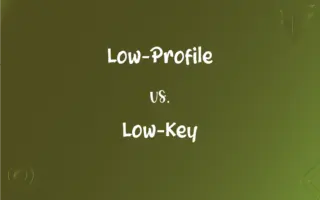
Trending Comparisons

Popular Comparisons

New Comparisons


Learn English Today
Free materials and resources for learners of English.
- Grammar list
- Exercise list
- Vocabulary Contents
- Idioms: by theme
- Idioms: alphabetical lists
- Today's idiom
- Ph Verb Lists + Exercises
- Business letters
- Presentations
- Interview questions
- All business content
- Stress-noun-verb
- Silent letters
- Online word games
- Printable word games
- Resources for learners
- Resources for teachers
- New words in English
- Environment
- Fun activities
- Sitemap: list of contents

See TODAY'S IDIOM
English Grammar
TRAVEL - TRIP - JOURNEY - TOUR - VOYAGE
Meaning and use of the words 'trip', 'travel', 'journey', 'tour', and 'voyage'..
The explanation below should help clarify the meaning and use of vocabulary related to travel.
Try an exercise
back to grammar
Copyright www.learn-english-today.com - All Rights Reserved.
The materials on this website may be copied for use in the classroom or for private study. Any other use without permission is forbidden.
Privacy Policy Cookie Policy

- Grammar & vocab
Confusing words: travel, a journey, a trip, a voyage
- Click to share on Facebook (Opens in new window)
- Click to email a link to a friend (Opens in new window)
- Click to share on WhatsApp (Opens in new window)
- Click to share on Twitter (Opens in new window)
- Click to share on Telegram (Opens in new window)
- Click to share on LinkedIn (Opens in new window)
The words travel , journey , trip and voyage can easily be confused by learners of English.
I suppose it’s a good time of year to look at these words, as the spring and summer holiday seasons will soon be starting for many people.
Travel (noun)
The noun travel is a general word, meaning to move from place to place, usually over long distances.
We can say: air travel , food and travel , space travel , business travel , a travel agency .
- Air travel is getting more expensive.
- The magazine is a food and travel guide.
We can also say travels , which is a plural noun:
- Where did you go on your travels?
- Jack Kerouac wrote many books about his travels.
Travel is also a verb:
- I travel 20 km to work every day.
Journey (noun)
A journey means moving from one place to another, especially in a vehicle. It is a single piece of travel. A journey can also be a regular thing.
Here is an example. Let’s say we go from London to Leeds then back again. That is two journeys (London to Leeds is the first journey, Leeds to London is the second journey).
We can say: a bus journey , a train journey , the journey to school , my journey to work .
Be careful with the plural: journeys NOT journies .
- How long does your journey to work take?
- Did you have a good journey?
- Did you have a good travel?
Trip (noun)
A trip describes the whole process of going somewhere and coming back. (It is more than one journey.)
Once again, let’s go from London to Leeds then back again. As I said above, that is two journeys, but it is one trip.
Some examples: a day trip , a round trip , a round-the-world trip, a boat trip and a business trip . We say go on a trip .
- We went on a three-week trip to Scotland.
- He’s gone on a business trip to Germany.
- Let’s go on a trip to the mountains this summer!
- The trip there took three hours. The journey there took three hours.
Voyage (noun)
Voyages are less common nowadays. A voyage is a very long trip, usually at sea or in space:
- At the age of twenty-three, Sir Francis Drake made his first voyage to the New World.
- A voyage around the world often took four or five years.
The French Bon voyage! translates into English as Have a good trip! or Have a good journey!
I hope that’s clear. Here’s a quick exercise for you to test your understanding:

34 Comments
sareh - April 16, 2012, 11:28 pm Reply
that was so helpful thank you
Amelia - February 20, 2013, 1:07 pm Reply
The explanation is very nice but I could not find the “quick exercise” you mention at the end. Thanks.

Stuart Cook - February 20, 2013, 7:05 pm Reply
Thanks, Amelia. Some users have told me that the exercises are not visible in certain browsers (older versions of Internet Explorer, for instance). They’ll definitely work if you use the Chrome browser.
MARIA DEL MAR - May 31, 2013, 8:53 pm Reply
hello,…. Your website is really usefull, now I can understand some differents thing … I hope it will be more successful than before.. and I wish improve my english too. 🙂
Allabergan - September 1, 2013, 11:01 pm Reply
I really liked this website. Thx . But what about <>???? Please, explain it also?! thx in advance
Allabergan - September 1, 2013, 11:02 pm Reply
I asked about ” tour”.
Stuart Cook - January 21, 2014, 7:44 am Reply
A tour is when we visit several different places on a long trip and is usually for pleasure. A tour can also be an official visit to inspect a place, e.g. They gave the Prime Minister a tour of the new factory.
Wen Dodge - August 14, 2021, 8:51 am Reply
How can I get more helpful info?
Blanca - January 20, 2014, 10:31 am Reply
Le agradecería me aclarara si es un error en la página o es que estaba yo confundida, porque aprendi que no se dice ‘Travel is much faster and cheaper nowadays…’ como se indica en la pagina como correcto, sino: ‘TRAVELLING is much fuster and cheaper …’ Por favor ¿puede confirmármelo? Muchas gracias por adelantado po su amable respuesta.
Blanca - January 20, 2014, 10:40 am Reply
Excuse me, I put the question in Spanish without realising where you could be located. I put it again in English,excuse me.
I learnt that the correct sentence would be: ‘TRAVELLING is much faster and cheaper..’ but in the site here the answer that appear as correct is ‘TRAVEL is much faster and cheaper..’
Could you please be so kind to confirm me if it is a mistake of the system or if I was wrong and in fact in this case is more correct to say travel than travelling?
Thank you very much in advance for your reply.
Stuart Cook - January 20, 2014, 11:03 am Reply
Blanca, It’s also possible to say Travelling is much faster and cheaper . The reason travelling was not given as an option in the multiple choice quiz is that we are looking at the differences between the nouns journey, trip and travel here. I see that this may be a bit confusing, so I have changed the last question in the exercise to air travel .
Luisa - January 21, 2014, 1:51 am Reply
Hi! I don´t find the question number 10 that you mentioned in your comment. Could you tell me if the exercise is incomplete? Thanks a lot.
Stuart Cook - January 21, 2014, 7:49 am Reply
Hi, Luisa The travel / journey / trip exercise has seven questions, not ten. You can see it at the end of the article above.
Rogerio - March 20, 2014, 5:35 pm Reply
Thank you for your help and congratulations for the iniciative of keeping this site in the web.
azam - May 7, 2014, 6:04 am Reply
Hi thank you very much. could you tell me how I can speak better please? When I speak English, I wanna get nervous and forget everything. my teacher told me ” don’t be shy” but he didn’t tell me how. please teach some exercises.
Alexandre Spindola - May 12, 2014, 5:41 am Reply
Dear Mr. Stuart Cook,
I’d like to thank you very very very very much for this explanation!!! I am Brazilian, and I have never had the opportunity to learn the difference among these confusing words. Now, thank you, I finally know that. I’m so happy and satisfied, thank you!!!
Best Regards,
Alexandre Spindola
Stuart Cook - May 12, 2014, 7:07 am Reply
Hi, Alexandre
I’m really glad you like the site and find it helpful. Good luck with your studies!
Pouya keikavous - May 26, 2014, 10:08 am Reply
Lots of thanks for explanation
regor ngavouka - September 9, 2014, 2:34 am Reply
Hi, i’m a congolese i’m so happy to have discovered the real and clear explanations of them. Thank you for having brought more light on the confusion that seemed to be as tough as a stone. But now thanks to you,
Aristia - September 25, 2014, 11:32 am Reply
Brilliant work! Thank you
Heine - February 23, 2015, 11:34 am Reply
thank you. this is very helpful.
Tiago_Dos_Santos - April 8, 2015, 11:41 am Reply
Extremely helpful! Thank you! 🙂
Venya Gangwani - October 11, 2016, 5:18 am Reply
This is a very good page but I need to ask that : A voyage is for pleasure or for business?
Aurélio Loiola - November 2, 2016, 10:56 pm Reply
This time I shall learn the differences between travel, journey, trip and voyage. On my future trip, I’ll take three flights because I’ll go to three different cities. In the middle, I got confused to say if I scheduled my journey to Recife or if I scheduled my travel to Recife on 28. I know I could only say I scheduled my flight from Fortaleza do Recife. But considering journey and travel which is right? Thanks a lot.
Fariba - February 10, 2017, 2:48 am Reply
Hi That was so useful & helpful. Thanks. Can we say: “go on a travel” ?
Pro Inglis - March 28, 2017, 9:34 pm Reply
Very Helpfull! Can you include Crossing and Fight??
Anonymous - May 25, 2017, 10:33 pm Reply
Thank you for your explanation, It really helped me understand the context in which I can use them.
Nassimah Reynolds - October 17, 2017, 7:28 pm Reply
Great work, Stuart Cook! I’m an English teacher myself and have to explain these words very often. But your explanation is very clear and concise, and illustrates the wonders of the English language : ) Thanks!
Nouran - December 2, 2017, 9:34 pm Reply
Thank you for this wonderful site . It helped me alot.
Dinuka - September 20, 2019, 3:40 am Reply
It very useful to me. Thanks
jennifer - July 1, 2020, 10:28 am Reply
wonderful and very useful information.
FreeAgent - January 22, 2021, 11:10 am Reply
I don’t know how to thank you enough, but this is the best insightful explanation ever on the Internet.
I really understood the subtle differences and proper usages of them.
You are evidently a great teacher.
Thank you so much! I really appreciate it.
Martine - May 16, 2021, 9:45 am Reply
Which noun do we use when we talk about travelling around the world? A … around the world? A world …?
Stuart Cook - May 16, 2021, 10:05 am Reply
We call it a round-the-world trip . A musician would do a world tour .
Leave a Reply Cancel Reply

Your email address will not be published.
You may use these HTML tags and attributes: <a href="" title=""> <abbr title=""> <acronym title=""> <b> <blockquote cite=""> <cite> <code> <del datetime=""> <em> <i> <q cite=""> <s> <strike> <strong>
Notify me of follow-up comments by email.
Notify me of new posts by email.
Related Posts
- Confusing words: job, work
- Confusing words: passed, past
- Confusing words: so, such
- Confusing words: close, shut
- Confusing words: fewer, less
- Confusing words: during, for, while
- Confusing words: convince, persuade
- Confusing words: speak, talk
- Confusing words: say, tell
- Confusing words: forget, leave

Vocabulary: Differences between travel, journey, trip, voyage and tour
Published 29/07/2015 In Blog
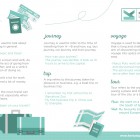
The Summer holidays are around the corner so it is definitely a good time to post an article on my blog explaining the difference between all these words.
Travel, journey, trip, voyage and tour can be easily confused by all those students learning English, so below are clear explanations of how to use the 5 terms:
*Verbs: Louise travels a lot for work *Nouns: Travel the way you wish to go
learn english online voyage journey travel trip tour online english course learn english on skype differences between voyage journey travel trip and tour English grammar

Blog categories
- Spanish Grammar
- English Grammar
- Grammar Activities

contact | any questions?
Contact details, message information.

Voyage vs. Journey — What's the Difference?
Difference Between Voyage and Journey
Table of contents, key differences, comparison chart, associated imagery, usage in literature, compare with definitions, common curiosities, is a voyage always longer than a journey, can you describe a trip by plane as a voyage, is a "life journey" a common way to describe one's life experiences, can a journey be a short trip, what primarily differentiates a voyage from a journey, can a journey be considered a voyage if it's by sea, is every voyage a journey, is the term "voyage" exclusive to travel on water, can "journey" refer to personal or emotional transitions, is "voyage" used figuratively, would a road trip be termed a voyage, how is "journey" used in a spiritual context, can "voyage" and "journey" be used interchangeably, how are these terms adapted in modern contexts, are voyages always planned or can they be spontaneous, share your discovery.
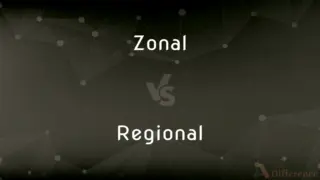
Author Spotlight
Popular Comparisons

Trending Comparisons

New Comparisons

Trending Terms


Understanding the Distinction: Travel, Trip, and Journey Explained
Zackary Hooper

Ever find yourself scratching your head over when to use ‘travel’, ‘trip’, or ‘journey’? Me too. In fact, these terms are commonly misused by even the most well-traveled folks among us.
Table of Contents
As an English language aficionado and travel enthusiast, I dove deep into linguistic resources to clear up this confusion once and for all. This blog will guide you through the nuances of these three words , helping you navigate your way to flawless English usage in any travel context .
Ready for departure?
Key Takeaways
- Travel refers to going to a place, especially far away.
- Trip involves traveling from one place to another, usually for a short period of time.
- Journey implies traveling from one place to another without necessarily returning.
- Proper usage of these terms is essential in effectively conveying our experiences.
Definition and Differences between Travel, Trip, and Journey
Travel is a verb that means going to a place, especially far away, while trip refers to the process of traveling from one place to another, usually for a short time. Journey, on the other hand, implies traveling from one place to another without necessarily returning.
Travel as a verb meaning to go to a place, especially far away
Travel, as a verb, emphasizes the act of moving from one location to another. This movement often involves significant distance between the two points. For instance, you might say you are traveling to Europe or Asia from America – places that are undoubtedly quite far from each other.
Notably, travel doesn’t always require a return trip; it merely notes the action of going somewhere far . Even voyages into space can be considered travel! So next time you utter “I love to travel,” note that this phrase speaks volumes about your passion for exploring distant destinations and embracing new experiences on a broader geographic scale .
Trip as the process of traveling from one place to another, usually for a short time
When we talk about a trip, we’re referring to the act of traveling from one place to another. It’s usually for a short period of time and involves moving between different locations .
Think of it as going on a vacation or taking a quick getaway. A trip can be as short as a day or extend over several days, but it generally doesn’t involve staying in one place for an extended period.
So whether you’re heading out on a road trip with friends or catching a flight to explore new cities, remember that a trip is all about the process of getting from point A to point B , enjoying the journey along the way.
Journey as traveling from one place to another, not necessarily returning
A journey is all about the experience of traveling from one place to another, without the expectation of returning . It can be a long and exciting adventure, with multiple destinations along the way.
Unlike a trip or travel, which often involves going somewhere and then coming back, a journey implies forward movement and exploration . It’s like embarking on a voyage of discovery, where you’re eager to see what lies ahead and open to new experiences.
Whether it’s backpacking through Europe or sailing around the world, a journey offers endless possibilities for exploration and self-discovery .
Common Uses and Examples of Travel, Trip, and Journey
– Travel: “I love traveling to different countries , experiencing new cultures and exploring exotic destinations.
– Trip: “We took a weekend trip to the beach, enjoying sun-kissed days and relaxing by the seaside.”
– Journey: “His journey across the desert was filled with challenges and self-discovery as he embarked on a soul-searching adventure.”
Travel: “I love to travel to different countries.”
I absolutely adore exploring different countries . Experiencing new cultures, trying unique cuisines , and immersing myself in unfamiliar landscapes is what makes travel so thrilling for me.
Whether it’s wandering through ancient ruins in Greece or hiking through the vibrant jungles of Costa Rica, I find immense joy in venturing beyond my comfort zone and discovering all that the world has to offer.
Travel opens my eyes to different perspectives and allows me to create lasting memories that I cherish forever.
Trip: “We went on a business trip to New York.”
Last week, I had the opportunity to go on a business trip to New York . It was an exciting experience that allowed me to explore the bustling city and meet with important clients . During the trip, we visited various companies , attended conferences , and even had some time to enjoy the sights and sounds of New York.
Being able to immerse myself in a different environment for a short period of time was both refreshing and educational. Overall, it was a successful trip that helped us strengthen our professional relationships and achieve our business goals.
Journey: “His journey around the world took him three years.”
I embarked on a three-year journey around the world, exploring new cultures and experiencing incredible adventures along the way. From bustling cities to remote villages, my journey allowed me to immerse myself in different landscapes and meet fascinating people from all walks of life.
It was a transformative experience that broadened my horizons and shaped my perspective on the world.
Clarifying Misuses of Travel, Trip, and Journey
Many people mistakenly use the term “travel” for short distances, but it should be reserved for going to faraway places. To understand the proper usage of these words, read on!
Incorrect uses of travel: “He traveled to the grocery store.”
Using the word “travel” to describe a short trip to the grocery store is incorrect. Travel usually refers to going to a distant place, especially far away. So, it’s important to use this term appropriately and not for everyday local trips like grocery stores.
Proper uses of the terms: “I traveled to Europe.”
I traveled to Europe for my summer vacation. It was an exciting travel experience filled with new cultures, delicious food, and breathtaking sights. The proper use of the term “travel” in this context refers to going somewhere far away , especially to a different country or continent .
In this case, I embarked on an adventure from my home country to Europe, immersing myself in each destination’s rich history and vibrant atmosphere. Traveling to Europe broadened my horizons and created memories that will last a lifetime.

Understanding the Nuances between Travel, Trip, and Journey
Travel, trip, and journey may seem similar, but they each have their own nuances. Read on to delve deeper into the distinctions between these terms and how to use them correctly in your everyday conversations.
Travel focuses on the action of going to a distant place.
Travel allows us to embark on exciting journeys to faraway destinations. It is the act of physically moving from one place to another , often to distant locations . Whether it’s exploring a new country , immersing ourselves in different cultures , or experiencing thrilling adventures , travel is all about the exhilarating action of venturing beyond our comfort zones .
So pack your bags and get ready for an incredible journey filled with unforgettable experiences!
Trip emphasizes the process of traveling and staying in a place.
A trip is all about the journey itself and the experience of being in a specific place . It focuses on the process of traveling from one location to another, while also emphasizing the time spent staying in that particular place.
Whether you’re taking a short weekend trip to a nearby city or embarking on a week-long vacation, a trip is about immersing yourself in new surroundings and enjoying everything that destination has to offer.
Journey implies a longer and more significant travel experience.
When embarking on a journey, you can expect a more extensive and meaningful travel experience . Unlike a simple trip or travel, a journey often involves exploring multiple destinations or pursuing a specific purpose .
It encompasses the idea of venturing into the unknown and embracing new challenges along the way. Whether it’s an epic road trip across several countries or a spiritual pilgrimage to sacred sites, a journey offers an opportunity for personal growth and transformation .
It allows you to immerse yourself in different cultures , navigate unfamiliar terrain, and create lasting memories. So if you’re seeking an adventure that goes beyond mere transportation from point A to point B, set out on a journey that will take you further and leave an indelible mark on your soul.

Conclusion and Importance of Using the Correct Terms
Understanding the distinctions between travel , trip, and journey is crucial in accurately conveying our experiences . By using these terms correctly, we can communicate more effectively and avoid confusion .
So whether we’re embarking on a short trip or a life-changing journey , let’s remember to use the right words to describe our adventures ! Keep exploring and keep traveling!
1. What is the difference between travel, trip, and journey?
Travel refers to the act of going from one place to another, while a trip is a specific instance of traveling for a particular purpose or destination. A journey, on the other hand, implies a longer and more meaningful experience that may involve personal growth or transformation.
2. Can you give examples of each term – travel, trip, and journey?
Sure! Travel can include activities like flying to a different country or taking a road trip across states. A trip could be going on vacation to Disneyland or visiting family over the holidays. And a journey might involve backpacking through Europe for several months or embarking on a spiritual retreat.
3. Is there any overlap between these terms?
Yes, there can be some overlap between these terms depending on context. For example, someone’s “trip” may also be considered their “journey” if it involves self-discovery or exploration. Similarly, long-term travel experiences may encompass both the notions of “travel” and “journey.”
4. How does understanding the distinction between these terms help in communication?
Understanding the distinction between travel, trip, and journey helps in effective communication as it allows us to accurately describe our experiences and intentions when discussing our travels with others. It provides clarity and avoids confusion by using appropriate terminology when sharing stories or making plans involving different types of travel experiences.
About the author

I’ve been fortunate to visit over fifty countries, each journey leaving a unique footprint on my life’s map. From bustling cities to serene nature trails, I’ve immersed myself in different cultures and experiences, constantly broadening my understanding of the world. On this site, I share my travel stories, tips, and insights, hoping to inspire others to embark on their own journeys. Join me as we uncover the beauty of our planet, one adventure at a time. Please reach out here if you need to get in touch.
Leave a Reply Cancel reply
Your email address will not be published. Required fields are marked *
Save my name, email, and website in this browser for the next time I comment.
Latest posts

Important Things to Keep in Mind While Traveling
Ever tried to navigate the complex world of planning a perfect trip and felt overwhelmed? I’ve been there too, overwhelmed by travel checklists, nervous about safety guidelines, and trying to balance out my luggage. Studies show that proper preparation can reduce travel stress significantly which led me to curate this guide to help you. This…

Transforming Travel for a Thriving World: The Importance of Good Travels
Are you keen on traveling but want to ensure your travels align with your values? I’ve been there, too. In fact, research shows that more and more people are interested in ethical tourism (Queiros, 2015). This article will introduce you to the concept of good travel and how it can contribute to a thriving world.…

10 Tips for a Safe Travel Home: How to Ensure a Secure Return
Traveling is always an adventurous journey. Yet, the excitement can quickly turn to concern over safe travel home or safety while on the road – a predicament I’ve found myself in many times. With extensive research and personal experience, this blog post will provide you with ten proven tips to ensure a safe journey home…
Voyage vs. Journey
In this lesson, we're gonna present the differences and similarities between these two words for you. Wanna join me? Well, come on.

What Is Their Main Difference?
Both refer to going to a place temporarily in order to relax and have fun. However, 'journey' is shorter than 'voyage'. A 'voyage' is usually a long trip on the ocean and it is not as common as 'journey' among native speakers.
Differences
'Journey' is shorter than 'voyage'. Additionally, 'voyage' usually refers to a trip by the ocean or the sea, and it is not as commonly-used as 'journey'. Look at the examples below:
Most people say enjoy the journey of life, there is no destination, but how?
Our journey to London than expected.
'Voyage', however, refers to a longer trip usually on the sea or the ocean. This word was more prevalent back in the old days. Check out the following examples:
He's on his voyage to South Africa.
The biography is filled with the recollection of her voyages .
Similarities
Both indicate going on a trip somewhere temporarily in order to enjoy your time. Check out the examples below:
So, have you been enjoying your journey so far?
In order to find out about the details of Jonathon's voyage to Oceania, read this book.
Are They Interchangeable?
Most native speakers use these two words interchangeably nowadays. Compare:
✓ Let me tell you about all ups and downs in my journey to South Korea.
✓ Let me tell you about all ups and downs in my voyage to South Korea.
As you can see, both examples are correct and nearly the same.
You might also like
Use vs. utilize, valuable vs. invaluable, venomous vs. poisonous, voice vs. tone, was vs. were, wisdom vs. intelligence.
Learn English by yourself!
Difference between “Travel”, “Trip”, “Journey”, “Tour”, “Voyage”

Travel, trip, journey, tour, voyage: meaning and use
When talking about traveling in English, we often come across words like “travel”, “trip”, “journey”, “voyage”, and “tour”. Although they all relate to traveling, the question often arises: what is the difference between them?
Travel is a general term that describes the process of moving from one place to another, usually over a significant distance. It can refer to any journey, regardless of its duration or purpose. For example:
- “I love to travel and explore new cultures.”
Trip refers to a specific journey with a particular purpose, which usually includes returning to the starting point. This word is often used when referring to short journeys or vacations. For example:
- “We went on a trip to the mountains for the weekend.”
Journey is a word that can describe a physical journey from one place to another, but it can also have a deeper meaning, describing a personal or spiritual process of growth or change. For example:
- “Her journey to becoming a doctor was challenging but rewarding.”
Voyage refers to a long journey, usually by sea or into space. For example:
- “Before the 20th century, long sea voyages were common.”
Tour is a journey during which several places are visited, especially during a vacation.
- “We went on a tour of Italy.”
Let’s examine each word in more detail, including its grammar, meaning, and examples of usage.
Travel – Meaning and usage
“ Travel ” is the most general term used to refer to the act of moving from one place to another. You can “travel” to faraway countries as well as nearby regions.
- As a verb, “travel” means “to go from one place to another, usually over a considerable distance”. It can be used for physical journeys as well as for the movement of objects or information.
- As a noun, “travel” is used to describe the activity of traveling or specific journeys.
- “Travel” can be both a regular verb and an uncountable noun.
- In verb form, “travel” is conjugated with different tenses and persons, e.g., “travels”, “travelled”, “travelling” (British English), or “traveling” (American English).
- As a noun, “travel” is usually used in the singular form without an article, e.g., “Travel is an important part of my life”.
- Verb : “I love to travel around the world.”
- Noun : “His travel experiences were documented in a blog.”
- “She travels to work by train every day.”
- “During his summer vacation, he went on a travel adventure across Europe.”
- “The news about the discovery travelled fast across the internet.”
Trip – Meaning and usage
“ Trip ” usually refers to a short journey there and back, with a specific purpose. For example, you can take “a trip” to another city or the mountains for the weekend.
- As a noun , “trip” means a journey to a place where you stay for a short time and then return. It can be a journey for the purpose of leisure, work, study, etc.
- As a verb , “trip” can mean to stumble or make a mistake, but in the context of traveling, it is used less often and may mean to travel with light, quick steps.
- As a noun , “trip” is countable, so it can have a plural form “trips”.
- As a verb , “trip” is conjugated in different tenses: “trips”, “tripped”, “tripping”.
- Noun : “We went on a trip to Paris last summer.”
- Verb : “Be careful not to trip over the rug.”
- “The business trip to Tokyo was very productive.”
- “Our school organized a trip to the museum.”
- “He tripped and fell while hiking in the mountains.”
- “She tripped over her shoelaces and dropped her groceries.”
“Trip” can also be used metaphorically, as in the expressions “guilt trip” (a feeling of guilt induced by another person) or “power trip” (an excessive or unjustified desire for power).
Journey – Meaning and usage
“ Journey ” can mean a long voyage, often with challenges or adventures. “Life’s journey” is an idiomatic expression referring to one’s path in life.
- As a noun , “journey” refers to the act of traveling from one place to another, especially when done by vehicle. It can be a physical journey, such as traveling a distance, or a metaphorical meaning, such as a journey through life or a personal experience.
- As a verb (although this usage is quite literary), “journey” means to travel.
- As a noun , “journey” is countable, so it can have a plural form “journeys”.
- As a verb , “journey” is conjugated in different tenses: “journeys”, “journeyed”, “journeying”.
- Noun : “The journey from London to Edinburgh takes about four hours by train.”
- Verb : “They journeyed across the desert for days.”
- “Her journey to recovery after the accident was inspiring.”
- “We embarked on a long journey through the mountains.”
- “As we journeyed further north, the weather became colder.”
“Journey” can also be used metaphorically to describe a long process of change or growth, such as “a journey of self-discovery” or “a spiritual journey”.
Tour – Meaning and usage
“ Tour ” refers to an organized excursion or route led by a guide. For example, travel companies offer “tours” to popular attractions.
- As a noun , “tour” means a visit to a place or area, especially for the purpose of sightseeing and learning about it. It can also be a trip for pleasure, especially as a vacation, visiting several different places in an area.
- As a verb , “tour” means to travel somewhere, e.g., to spend a month touring (around/in) Kenya.
- As a noun , “tour” is countable, so it can have a plural form “tours”.
- As a verb , “tour” is conjugated in different tenses: “tours”, “toured”, “touring”.
- Noun : “We went on a tour of the museum.”
- Verb : “The band is currently touring to promote their new album.”
- “They took a guided tour of the historic city.”
- “Our company organizes tours to various countries.”
- “Next year, the theater group will tour in Asia.”
- “She has been touring as a solo artist for two years.”
“Tour” can also be used metaphorically, such as “a tour of duty,” meaning a period of service, especially in the military.
Voyage – Meaning and usage
“ Voyage ” mainly refers to sea or space journeys. This word conveys a sense of adventure and exploration of new territories. The term is often used to describe long-distance travels.
- As a noun , “voyage” refers to a long journey, especially by sea. It can be used to describe long sailing journeys on ships or travels across oceans.
- As a verb (although this usage is quite literary), “voyage” means to travel, usually over great distances.
- As a noun , “voyage” is countable, so it can have a plural form “voyages”.
- As a verb , “voyage” is conjugated in different tenses: “voyages”, “voyaged”, “voyaging”.
- Noun : “The voyage across the Atlantic took two weeks.”
- Verb : “They voyaged through the Mediterranean on their yacht.”
- “Christopher Columbus’s voyage to America was a pivotal event in history.”
- “The astronauts’ voyage to the moon captured the world’s imagination.”
- “During the 18th century, many explorers voyaged to the Pacific Islands.”
- “She always dreamed of going on a voyage around the world.”
“Voyage” can also be used metaphorically, for example, “a voyage of discovery” means the process of learning or exploring the unknown.
Knowing these distinctions will allow you to choose the right word to describe your experience and impressions. This will not only improve your understanding of the English language but also help avoid misunderstandings when communicating with others.
Leave a Reply
Your email address will not be published. Required fields are marked *
Save my name, email, and website in this browser for the next time I comment.
Travel vs. Trip vs. Journey

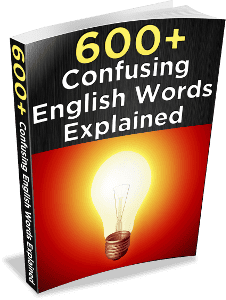
The act of going to another place (often for a short period of time) and returning.
- We took a five-day trip to the Amazon.
- You’re back from vacation! How was your trip ?
- I went on business trips to Switzerland and Germany last month.
Use the verbs “take” and “go on” with trip .
- A round-trip ticket is a ticket for going and coming back.
- A one-way ticket is only for going.
Travel (v.)
Going to another place (in general).
- I really like to travel.
- He travels frequently for work.
- My sister is currently traveling through South America.
Travel (n.) can be used to describe the act of traveling in general:
- Travel in that region of the country is dangerous.
- World travel gives you a new perspective.
Incorrect uses of travel :
- I bought this shirt on my travel to Thailand. I bought this shirt on my trip to Thailand.
- I’m planning a travel to the U.S. next year. I’m planning to travel to the U.S. next year. I’m planning a trip to the U.S. next year.
Journey (n.)
One piece of travel (going from one place to another) – usually a long distance.
- The journey takes 3 hours by plane or 28 hours by bus.
- He made the 200-mile journey by bike.
- “A journey of a thousand miles must begin with a single step” – Lao-tze, Tao Te Ching
We can also use journey in a more “metaphorical” way to talk about progress in life:
- He has overcome a lot of problems on his spiritual journey.
- My uncle is an alcoholic, but he’s beginning the journey of recovery.
Quiz: Travel, Trip, or Journey
- Then and Than
- Affect and Effect
Clear up your doubts about confusing words… and use English more confidently!

More Espresso English Lessons:
About the author.
Shayna Oliveira
Shayna Oliveira is the founder of Espresso English, where you can improve your English fast - even if you don’t have much time to study. Millions of students are learning English from her clear, friendly, and practical lessons! Shayna is a CELTA-certified teacher with 10+ years of experience helping English learners become more fluent in her English courses.
Accessibility links
- Skip to main content
- Skip to main Navigation
- Skip to Search

Travel, Trip or Journey?

No media source currently available
- 128 kbps | MP3
- 64 kbps | MP3
In today’s Ask a Teacher, our reader Leopoldo asks about three commonly confused travel words. Here is the question:
Hi! Can you explain when it is correct to use "trip," "journey" or "travel"? Thank you for your answer. – Leopoldo
Hello, Leopoldo!
Are you traveling anytime soon? If so, where are you going on your trip ? I hope the journey goes smoothly and that you have a great time.
Did you note how I used the words? I used “travel” as a verb and the other two words as nouns. That is how we use them most often.
Now, we will explore each word, beginning with “travel.”
“Travel” is a verb that means “to go to a place and especially one that is far away.” Far can mean long distances within the same country or to other countries.
For instance: I have a friend who travels abroad a lot for work.
“Travel” can also be a noun that relates to the act or activity of traveling in general. For instance: The future of U.S. travel is not likely to include high-speed rail.
A common mistake with “travel” is confusing it with “trip,” like this: I bought this souvenir on my travel to California.
We rarely use “travel” with “my,” “your,” “a” or other determiners .

The word “trip” is a noun that means “the act of going to another place and returning.” For example: I bought this souvenir on my trip to California.
We also often use the verbs “go on” or “take” with “trip,” like this: I took a long trip to California last year.
And, we say things like “day trip,” “business trip,” and “road trip” to describe different kinds of trips.
We do not use the word as a verb for travel.
The word “journey” is a noun that means “the act of going from one place to another.”
But, we use it in two specific ways:
One is to talk about a trip that takes a long time, especially if there are either difficulties or discoveries in transit. For instance:
I hope to take a journey across America by car one day.
The other is to talk about a trip that does not involve physical distance, but instead is a process of learning or self-discovery, as in this:
A 10-day vipassana is a kind of spiritual journey.
We rarely use “journey” as a verb except in some styles of writing.
And that’s Ask a Teacher.
I’m Alice Bryant.
Do you have a question for Ask a Teacher? Write to us in the comments area and tell us your name and country. If you would like, you can also tell us one thing about yourself.
_________________________________________________________________
Words in This Story
abroad – adv . in or to a foreign country
souvenir – n . something that is kept as a reminder of a place you have visited or an event you have been to
determiner – n . a word that comes before a noun and is used to show which thing is being referred to
vipassana – n . meditation involving concentration on the body or its sensations, or the insight which this provides

Also, Too and As Well

The Rules of Word Stress, Part 2

The Rules of Word Stress, Part 1

VOCABULARY: Travel, Journey or Trip? What's the difference?
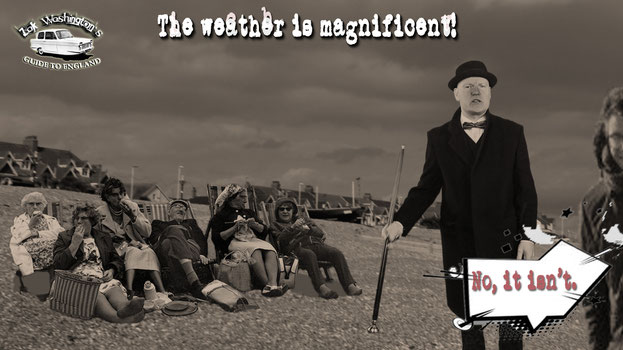
To travel is, of course, a verb but not normally a noun unless it is in a literary context e.g. Gulliver’s Travels (a book by Jonathan Swift), or a long, extensive tour.
In everyday English, we would refer to travelling by saying a journey , or a trip , the difference being that a trip talks of the whole process of going, doing what you do, and then returning.
A journey is used more to refer to the journey itself, although often there is little difference. Compare the following: ‘The journey was rotten. The fat man who sat next to me snored all the time.’ ‘The trip was great, we managed to do everything that we had intended.’
To journey is an archaic verb not used now. To trip exists but it has a completely different meaning; ‘to fall over an object’; ‘He tripped over the step and spilt all the drinks.’
To voyage only refers to a long journey made at sea.

Write a comment
- Scroll to top

Voyage vs Journey: skillnad och jämförelse
Ordet resa kommer från det gamla franska ordet som kallas "travail". Ordet betydde i huvudsak 'att arbeta'. Ordet förgrenade sig sedan till ett brett spektrum av betydelser som Voyage och Journey.
Även om både en resa och en resa innebär att resa, finns deras skillnader.
Key Takeaways En resa avser specifikt en lång resa, till sjöss eller med flyg, medan en resa omfattar alla resor från en plats till en annan. Resor involverar utforskning eller transport av varor, medan resor kan vara fysiska, känslomässiga eller symboliska. Termen "resa" innebär en känsla av äventyr, medan "resa" kan syfta på vilken resa som helst, oavsett längd eller syfte.
Voyage vs Journey
Skillnaden mellan Voyage och Journey är att de refererar till två olika färdsätt.
En resa hänvisar till en långväga handling av att resa, av hav eller någon annan stor vattenförekomst, medan en resa avser handlingen att långväga färdas på land, med olika transportmedel.
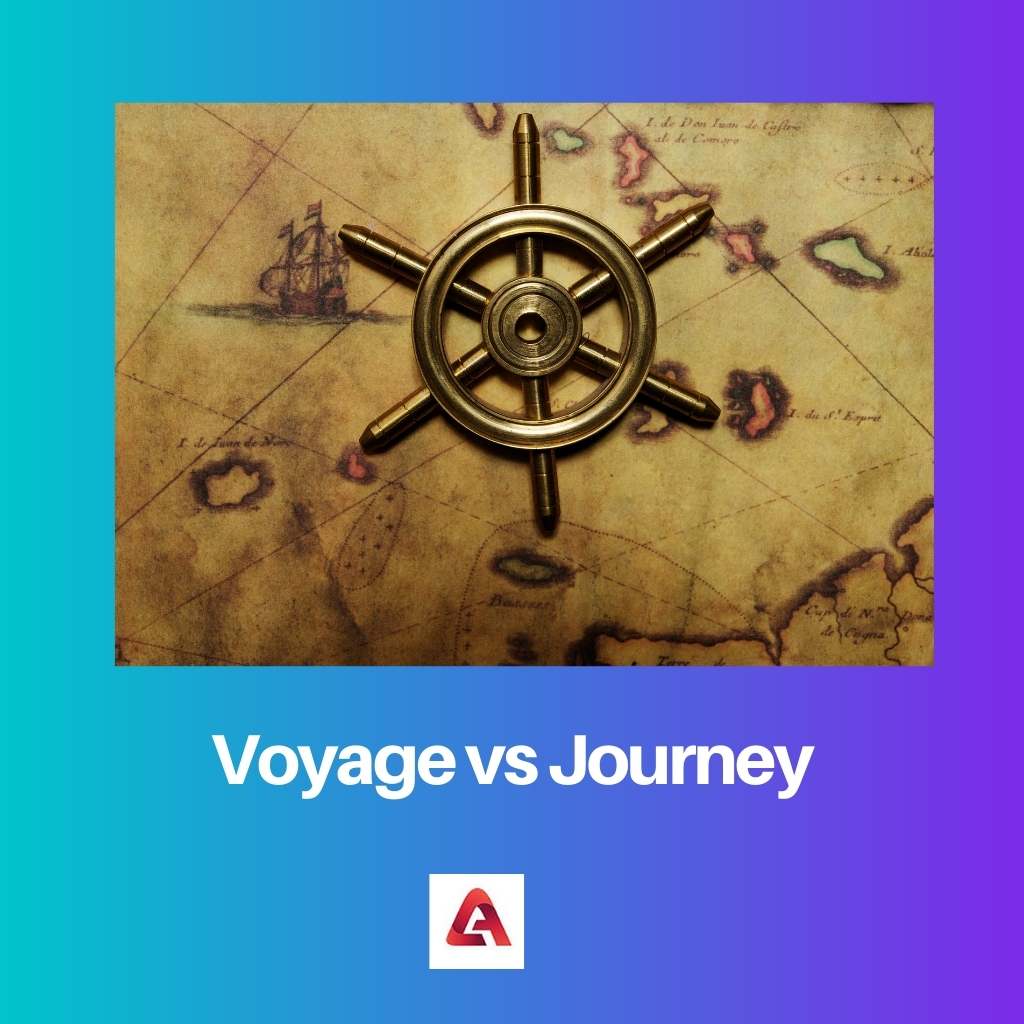
En resa är en resa. Vanligtvis avser en resa en långfärdsresa som huvudsakligen görs på vattnet istället för på land.
Vanligtvis är transportsättet därför fartyg, båtar och andra vattenfartyg. Resan kan också användas för att beskriva tidens gång. I allmänhet avser det sjöresor.
The Journey är ett engelskt ord som har olika betydelser. I allmänhet betyder det att resa en viss sträcka.
En resa kan dock användas för att beskriva både långa eller korta resor. Det kan eller kanske inte inkluderar sjöresor och inkluderar ett brett utbud av transportsätt.
Jämförelsetabell
Vad är voyage.
Termen resa är ett franskt ord som betyder resa. Det används för att hänvisa till en långresa. Till exempel, en Historien om ett fartyg på en lång resa skulle betecknas som en ”resahistoria.
Andra betydelser för ordet resa inkluderar handlingen eller processen att resa eller frakta.
Denna term används för att beskriva att resa på vatten. En resa består av många olika delar, såsom resans avgång, själva resan och ankomsten.
Förr använde man ordet Voyage för längre resor, som långa sjöresor.
Voyage är en mindre använd term i den moderna världen. Andra termer som kryssning, korståg, passage, segling och liknande används.
Det främsta skälet är dock att långa sträckor under medeltiden inte kunde uppnås landvägen eftersom inga sådana transporter fanns tillgängliga.
Att resa till sjöss var det absolut billigaste resesättet (även idag); Därför användes denna term ofta då.
Idag med tillkomsten av många effektiva transportsätt som tåg och flyg, har sjöresandet minskat, och det är också användningen av ordet. Termen används dock fortfarande men mer i en poetisk ton .
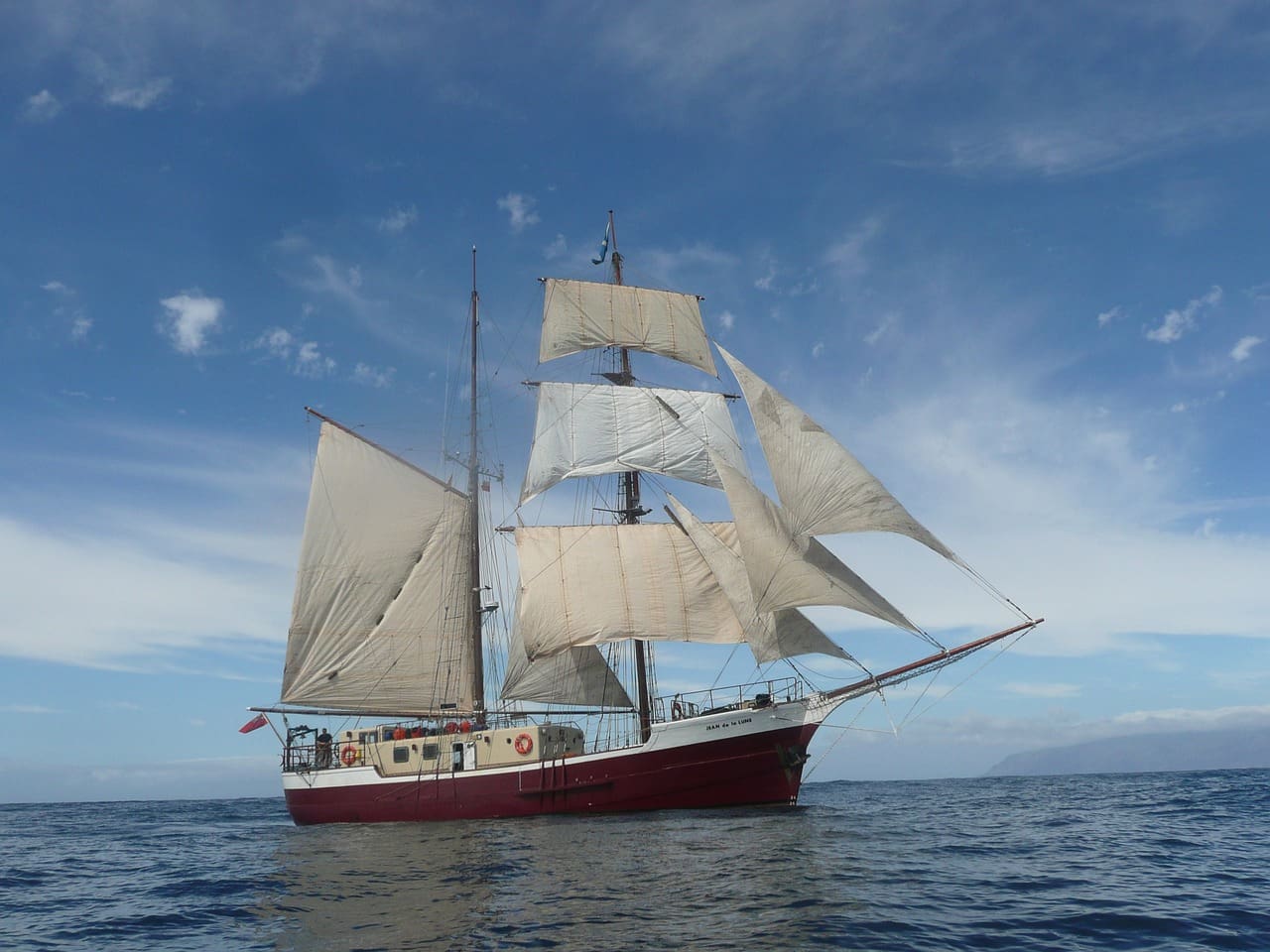
Vad är Journey?
The Journey är en fras som betyder en lång resa du tar för att komma någonstans. Anledningen till att det heter så är att det tar lång tid.
Det finns många olika typer av resor, och de är mycket varierande. I allmänhet är en resa en lång resa du tar för att komma någonstans eller göra något.
En resa kan göras av olika anledningar, men det är för affärer eller för nöjes skull. Ibland är resan målet, men inte alltid.
En resa kan vara en resa till jobbet, en resa för att besöka en vän på helgen eller en resa till ett främmande land för en resa för livet.
Varje resa på betydande avstånd är en resa, men ordet resa kan också användas för att beskriva hela en persons liv. Till exempel är en människas liv en resa.
Vi börjar alla i unga år och lever vårt liv. Vi reser till olika platser, ser olika saker och träffar många olika människor.
Korta resor kallas också resor. En resa, för nöjes skull, kallas en utflykt.
Resan som görs för ett visst syfte kallas expedition och så vidare. Ordet i sig har många synonymer och kan användas omväxlande.

Huvudskillnaderna mellan resa och resa
- Den största skillnaden mellan orden resor och Journey är att det förra betyder en resa till sjöss, och det senare betyder en resa på land.
- Resan syftar inte på någon annan betydelse än att resa, men Resan är också ett metaforiskt ord för en lång resa i betydelsen liv och andlig tillväxt.
- Resor är mycket längre än resor eftersom resor genom vatten tar längre tid och även täcker längre sträckor.
- Ordet "resa" innebär att du reser till ett unikt resmål, men "resa" betyder att resa mellan olika platser.
- En resa är lång, men en resa kan vara lång eller kort, beroende på resans syfte.
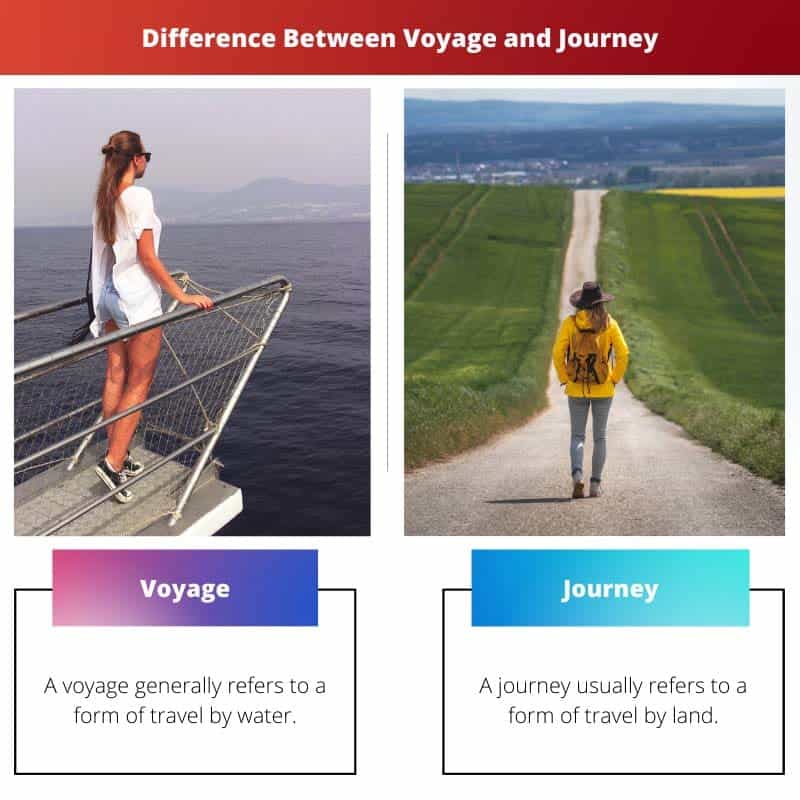
Referensprojekt
- https://www.taylorfrancis.com/chapters/edit/10.4324/9781315246970-2/defining-travel-travel-book-travel-writing-terminology-jan-borm
- https://books.google.com/books?hl=en&lr=&id=3aD_284HkrIC&oi=fnd&pg=PR7&dq=what+is+a+voyage&ots=4u1yAJXyAK&sig=Nn_d8xQNSyjOwxe33jkH9lDux_E
Senast uppdaterad: 13 juli 2023

Jag har ansträngt mig så mycket för att skriva det här blogginlägget för att ge dig värde. Det kommer att vara till stor hjälp för mig om du överväger att dela det på sociala medier eller med dina vänner/familj. DELA ÄR ♥️

Emma Smith har en MA-examen i engelska från Irvine Valley College. Hon har varit journalist sedan 2002 och skrivit artiklar om engelska, sport och juridik. Läs mer om mig på henne bio sida .
Dela detta inlägg!
10 tankar om “voyage vs journey: difference and comparison”.
Den här artikeln hjälpte mig att förstå betydelsen och skillnaderna mellan resa och resa. Jämförelsetabellen är mycket användbar.
Vissa av de punkter som presenteras verkar ganska självklara, jag är inte helt övertygad om behovet av en så detaljerad analys.
Jag förstår din poäng, Sienna. Den detaljerade analysen ger dock värdefulla insikter.
Jag tyckte om att lära mig om ursprunget till ordet "resa". Det är intressant att se hur språket utvecklas över tid.
Mycket informativ artikel, med mycket detaljer om skillnaderna mellan de två. Referenserna ger det nödvändiga stödet för texten.
Jag håller med, artikeln är djupt informativ och väl underbyggd.
Det här verkar vara en väl genomarbetad artikel, jag tror att författaren gjorde skillnaderna mellan resor och resor ganska tydliga.
Jag tror inte att de distinktioner som gjorts är tillräckligt betydande för att motivera artikelns längd.
Faktum är att författaren gjorde ett bra jobb med att presentera distinktionerna.
Jag fann det historiska sammanhanget för termerna "resa" och "resa" särskilt fascinerande.
Lämna en kommentar Avbryt svar
Spara mitt namn, e-postadress och webbplats i denna webbläsare nästa gång jag kommenterar.
Vill du spara den här artikeln till senare? Klicka på hjärtat i det nedre högra hörnet för att spara i din egen artikelbox!

IMAGES
VIDEO
COMMENTS
What is the difference between journey, trip, voyage and excursion? 1 `journey' A journey is the process of travelling from one place to another by land, air, or sea.
Summary: 1."Journey" refers to a single or lone piece of travel; "voyage" refers to a long journey mainly to a distant place or foreign place especially by the sea. 2."Journey" is a word which is very often used in the modern world; "voyage" is not often used in the modern world but was very significant historically. Author.
Here, the historical context of the event or journey can influence the choice between voyage and journey. 3. Regional Differences. There may be regional differences in the usage of voyage and journey. For example, in British English, voyage is more commonly used to describe long sea journeys, while journey is used for shorter trips.
In contrast, a journey can refer to travel of any length and by any mode of transportation, including walking. 12. The term voyage carries a sense of adventure and exploration, often associated with discovery and long distances. A journey, however, is a broader term that encompasses all types of travel, from a short trip to a long expedition.
Meaning and use of the words 'trip', 'travel', 'journey', 'tour', and 'voyage'. The explanation below should help clarify the meaning and use of vocabulary related to travel. The word 'travel' is used to talk about going from one place to another. Verb : Paul travels a lot in his job. Noun : Travel nowadays is faster than before.
Voyage vs Journey. The difference between Voyage and Journey is that they refer to two different modes of travel. A voyage refers to a long-distance act of traveling, by sea or any other large water body, while a journey refers to the act of long-distance traveling by land, by different means of transport. A voyage is an act of traveling.
Trip (noun) A trip describes the whole process of going somewhere and coming back. (It is more than one journey.) Once again, let's go from London to Leeds then back again. As I said above, that is two journeys, but it is one trip. Some examples: a day trip, a round trip, a round-the-world trip, a boat trip and a business trip .
Vocabulary: Differences between travel, journey, trip, voyage and tour . Published 29/07/2015 In Blog. Download image The Summer holidays are around the corner so it is definitely a good time to post an article on my blog explaining the difference between all these words.
A voyage is a long journey, not necessarily for pleasure, on a ship. We don't talk about voyages very much in the present time, but historically they were very significant:
Key Differences. A voyage usually indicates a prolonged trip, primarily by sea or space. In contrast, a journey is a more generic term that encompasses the act of traveling between two or more points, irrespective of the medium or duration. Historically, the word voyage was often linked with explorations across oceans, indicating adventures and ...
Journey is a synonym of voyage. In obsolete terms the difference between voyage and journey is that voyage is the act or practice of travelling while journey is a day's work. As nouns the difference between voyage and journey is that voyage is a long journey, especially by ship while journey is a set amount of travelling, seen as a single unit; a discrete trip, a voyage.
1. What is the difference between travel, trip, and journey? Travel refers to the act of going from one place to another, while a trip is a specific instance of traveling for a particular purpose or destination. A journey, on the other hand, implies a longer and more meaningful experience that may involve personal growth or transformation. 2.
What Is Their Main Difference? Both refer to going to a place temporarily in order to relax and have fun. However, 'journey' is shorter than 'voyage'. A 'voyage' is usually a long trip on the ocean and it is not as common as 'journey' among native speakers.
Dive into the fascinating nuances of the English language as we unravel the differences between 'journey,' 'trip,' 'voyage,' and 'travel.' Join us as we diss...
Journey - Meaning and usage "Journey" can mean a long voyage, often with challenges or adventures. "Life's journey" is an idiomatic expression referring to one's path in life. Meaning: As a noun, "journey" refers to the act of traveling from one place to another, especially when done by vehicle. It can be a physical journey ...
Journey (n.) One piece of travel (going from one place to another) - usually a long distance. The journey takes 3 hours by plane or 28 hours by bus. He made the 200-mile journey by bike. "A journey of a thousand miles must begin with a single step" - Lao-tze, Tao Te Ching.
A common mistake with "travel" is confusing it with "trip," like this: I bought this souvenir on my travel to California. We rarely use "travel" with "my," "your," "a" or ...
There are small differences between these words. For one, travel is more commonly used as a verb than a noun. You won't really hear someone say "I'm going on a travel", but you'll often hear people say "I'm going on a trip". As for trip and journey, trip usually refers to a small casual outing that can be anywhere from a few days to a few weeks.Journey, however, has a more epic and grandiose ...
The correct way to say this would be "I voyaged to Europe last summer.". 2. Using "Voyage" Instead Of "Travel". Another mistake people make is using "voyage" instead of "travel.". While both words refer to a journey, "voyage" is typically used to describe a long or adventurous journey, such as a sea voyage.
A journey is used more to refer to the journey itself, although often there is little difference. Compare the following: 'The journey was rotten. The fat man who sat next to me snored all the time.' 'The trip was great, we managed to do everything that we had intended.'. To journey is an archaic verb not used now.
Travel can be enjoyable and exciting, but it doesn't necessarily have the same depth of meaning as a journey. While both journey and travel involve going somewhere new, the key difference is the purpose behind it. A journey is about personal growth and transformation, while travel is about exploration and discovery.
The difference between Voyage and Journey is that they refer to two different modes of travel. A voyage refers to a long-distance act of traveling, by hav or any other large water body, while a journey refers to the act of long-distance traveling by land, by different means of transport.